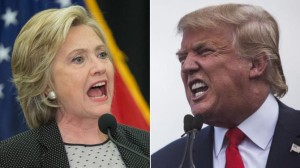Later this year — in late summer — my wife and I are going to face a daunting task.
We’re going to fly to Germany, where we’ll spend time visiting friends and touring the beautiful region of Bavaria. We plan as well to visit other friends in The Netherlands while we’re across The Pond.
OK, that’s not the daunting part. The challenge will occur in explaining the American political system to sophisticated western Europeans.
It’s not that I haven’t had similar challenges before.
In November 2000, we traveled to Greece. Voting in the U.S. presidential election had just concluded — but we didn’t yet have a new president. Vice President Al Gore had collected more votes than Texas Gov. George W. Bush, but the outcome had been thrown into a tizzy over those “hanging chads” in Florida.
Our Greek hosts — who also are quite sophisticated — kept peppering me with questions that centered on this idea: How is that one candidate can get more votes than the other guy but still not win?
That’s when I sought to explain the Electoral College system and how electoral votes are allocated based on which candidate wins a particular state. The bigger the state, the more electors they get. I tried to explain that the system has worked generally pretty well.
The Bush-Gore election and its immediate aftermath shot that idea all to hell.
This year, the presidential election is heading into a climactic phase as my wife and I are vacationing in Western Europe. I’m expecting our friends to introduce us to their friends as “visitors from America.”
I can see the eyebrows raising as they ask us about “you know who.”
I also can anticipate the question: How in the world can a major American political party nominate someone like Donald J. Trump?
To be honest, I haven’t yet formulated my answer. Neither has my wife. We’re throwing up our hands in dismay at the prospect of this know-nothing narcissist accepting the Republican Party presidential nomination — against the expressed wishes of the GOP’s wise men — and then taking his campaign of innuendo and insults against Hillary Rodham Clinton.
Both of us mounted valiant efforts in 2000 to explain our political system to the inquisitive Greeks.
This year, according to my wife, it’s hopeless.
“I think this time,” she said, “I’m going to say, ‘Yep, you’re right. We’ve messed up.'”
I’m thinking of following her lead.
